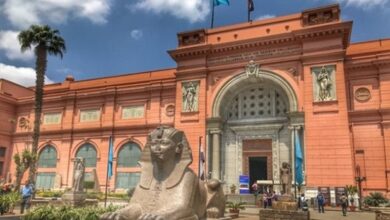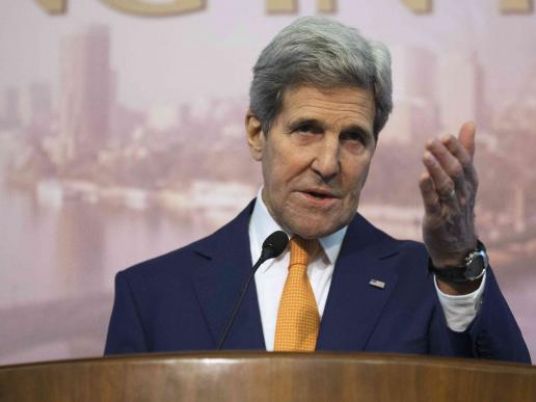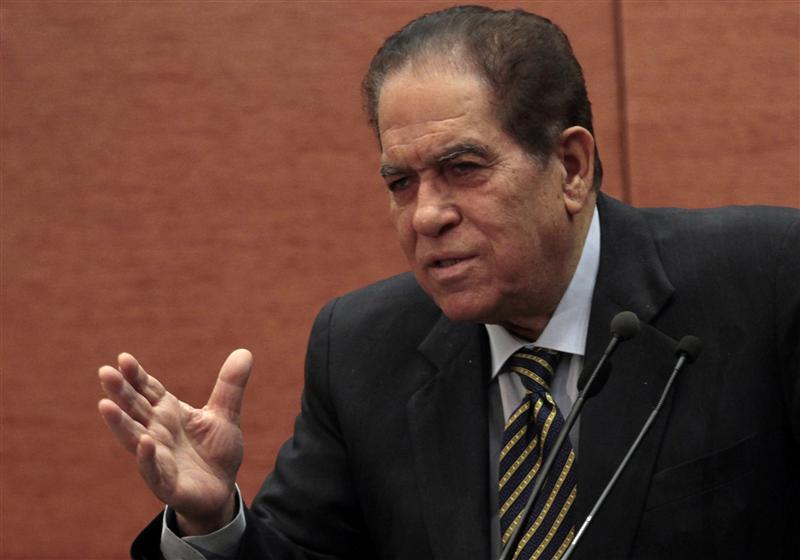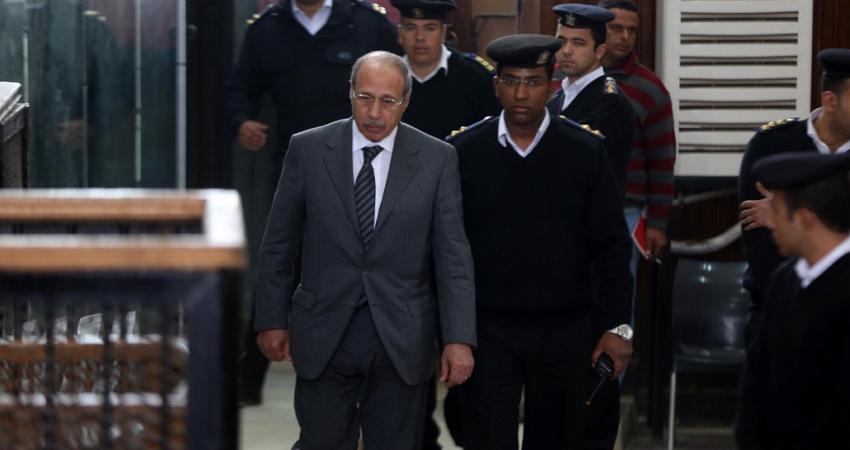The Supreme Council of the Armed Forces (SCAF) held a press conference on Saturday, in the aftermath of the army's violent dispersal of a sit-in in Tahrir Square before dawn that day, during which three people died and dozens were injured.
Major General Ismail Etman and Adel Emara, both SCAF members, participated in the conference. Etman said the SCAF had met the cabinet to discuss the situation, the demands of the revolution and guarantees for their achievement.
Etman said that the government respects the law, which he said is being implemented indiscriminately. The meeting with the cabinet emphasized the role of the media, which he said should avoid rumors that drive a wedge between the people and the army. He described the revolutionary youth as a “friendly power” that represents the majority of Egyptians. He said the SCAF wants to restore calm to Egyptian streets to improve the economy and attract tourists and investments.
Etman called on the people to help restore security and protect the gains of the revolution, avoid rumors and participate in all dialogues.
He added that after the meeting, the SCAF decided to crack down on corrupt figures whatever their positions, strictly implement anti-thuggery laws, and restore all the formerly-ruling National Democratic Party headquarters.
Regarding calls for the dissolution of local councils, Etman said a decision will be taken as soon as the law on local authorities is issued. He added that changing senior officials at state institutions is being done in accordance with the law.
Etman said there will be a reshuffle of govereners over the coming few days.
He denied that Prime Minister Essam Sharaf submitted his resignation, adding that the meeting with the cabinet was friendly and lasted three hours.
Emara, meanwhile, provided a detailed account of what happened in Tahrir Square. He said people flocked to Tahrir between 8 am and 3 pm. Eight people wearing military uniform were seen among them. At 5 pm, the protesters started to leave, he said. At that time there was no army presence except some military police there for organizational purposes. He added that even though the army and the SCAF were insulted, the army did not intervene. He said at midnight, the remaining protesters put up a tent where the people in military uniform sat, and still the army did not intervene.
Emara said the army did not attack because the SCAF pledged not to attack peaceful protests, as peaceful protest is a constitutional right.
Regarding the clashes, Emara said that its sources confirmed that the protesters who clashed with the army do not belong to the 25 January youth. He added that while the protests were happening in Tahrir, the US and the Israeli Embassies were both exposed to threats. He said there were attempts to deflect the army's attention away from Tahrir by staging simultaneous protests at other spots. However, all the political powers represented in Tahrir expressed rejection of these malicious attempts, he said.
Before the curfew began, signals were sent to the protesters to leave Tahrir, to which they did not respond.
Emara added that several protesters pointed out the presence counter-revolutionaries seeking to ruin the revolution and spoil the relationship between the army and the people. Investigations are ongoing in this regard, he said.
At 1 am, the army began to evacuate Tahrir in preparation for the curfew and arrested people wearing military uniform in violation of the law. He added that the army members who implemented the evacuation did not carry ammunition and were given orders to avoid the use of violence against protesters.
However, the protesters started hurling Molotov cocktails and stones at the army, he said.
Many people stood around the tent where the people in military uniform were. According to preliminary investigations, he said, the protesters wanted to restrict their movements in order to use them to blackmail the army later.
At 4:30 am, the square was completely evacuated. Only minor injuries were reported. At 5 am, the army returned to its usual positions. At 5:30 am, he claimed, large numbers of people started returning from Talaat Harb Street. They had two machine guns and several Molotov cocktails. They attacked three vehicles the Armed Forces uses for administrative purposes.
One death was reported among the protesters, he said. The victim was taken to an Armed Forces hospital and the cause of death is being investigated
Emara added that the protesters remained in Tahrir and blocked traffic, which shows that they do not belong to the 25 Janaury revolutionary youth. He said that people incited by a well-known figure led the protesters on Saturday, and this was a similar stituation to the day of the Tahrir clashes known in the media as the “camel battle”, which occurred during the revolution.
Etman also said that 42 people were arrested on Friday, including people in military uniform and three foreigners.
Finally, the two SCAF members denied news that a Jordanian medical team is treating Hosni Mubarak.
Etman said that he received information that certain Gulf countries have offered to provide assistance to Egypt in exchange for not bringing Mubarak to justice. He said the final decision is in the hands of the judiciary alone.
He stressed that the SCAF never promised Mubarak to help him escape trial if he would step down.
Translated from the Arabic Edition.




